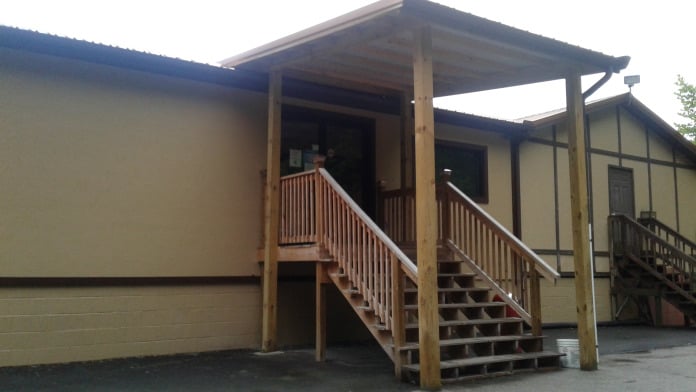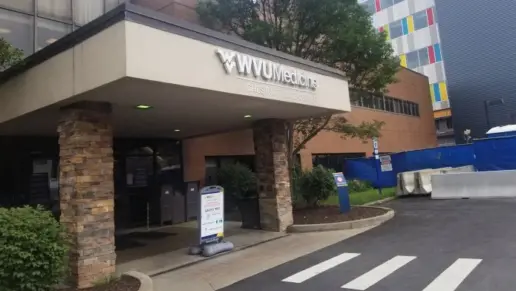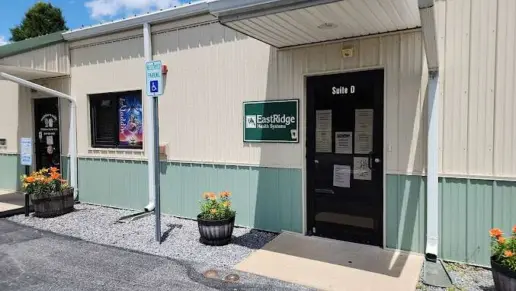Counselors are so caring and loving, they will help you in any way possible. This place offers great help and benefits only to those who want to put an equal amount of work into it, it is reciprocal. They are a huge turn around in my mental health, along with my friends and ...
About Charleston Comprehensive Treatment Center
Charleston Comprehensive Treatment Center is an outpatient clinic for treating opioid use disorders in Charleston, West Virginia. They help adults in the state’s capital and surrounding neighborhoods establish a strong foundation for opioid addiction recovery through medication assisted treatment (MAT).
This facility is appealing for various reasons. They support same day admission and 24/7 appointment scheduling. They offer low-cost treatment with flexible funding options that make it easy to pay for services. This includes Medicaid, Medicare and various commercial insurance plans. They also accept out of pocket payments, state and public funding and the VA.
Their supportive and encouraging environment enables you to actively participate in your recovery process. They aim to help you regain control of your life and rediscover hope for a brighter future. MAT is an evidence-based method that uses meds approved by the FDA alongside behavioral therapy to support recovery. Besides opioid dependence and alcoholism, it is also the most effective technique for addressing addiction to stimulants and benzos.
Their MAT program begins with comprehensive assessments or evaluations. This involves physical exams and a series of tests including drug and TB testing. The evaluation helps the clinical team create a personalized care plan that addresses your unique recovery needs. This includes the intensity of therapy and specific meds needed to help you overcome opioid dependence.
The clinic offers various choices of meds for their MAT program. This is another reason why I like their recovery program. Available options include methadone, Suboxone, buprenorphine, and Vivitrol. These meds curb cravings and minimize withdrawal symptoms. This makes you more responsive to counseling or behavioral therapy. They offer both individual and group therapy to address the psychological and emotional issues fueling your opioid use.
Group therapy promotes community support through peer interaction. You’ll benefit from the support of peers with similar experiences who can offer encouragement. They’ll help keep you accountable as you navigate your recovery journey. It’s an opportunity to build lasting relationships and life skills that support sober living among the picturesque communities along the Kanawha River. These include effective communication, conflict resolution and problem solving. These are healthy coping skills that prevent relapse.
Individual counseling enables you to process your feelings and experiences that may stand in the way of your recovery with the help of your primary therapist. This creates a clear pathway to lasting recovery from opioid addiction and drug free future.
Latest Reviews
Rehab Score
Gallery

Location
Accepted Insurance
Other Forms of Payment
Private insurance refers to any kind of healthcare coverage that isn't from the state or federal government. This includes individual and family plans offered by an employer or purchased from the Insurance Marketplace. Every plan will have different requirements and out of pocket costs so be sure to get the full details before you start treatment.
Self-pay involves paying for treatment out of your own pocket. You can use savings or credit, get a personal loan, or receive help from family and friends to fund your treatment. If you don't have insurance or your insurance plan doesn't cover a specific program, self-pay can help ensure you still get the care you need.
Financial aid can take many forms. Centers may have grants or scholarships available to clients who meet eligibility requirements. Programs that receive SAMHSA grants may have financial aid available for those who need treatment as well. Grants and scholarships can help you pai for treatment without having to repay.
Medicare is a federal program that provides health insurance for those 65 and older. It also serves people under 65 with chronic and disabling health challenges. To use Medicare for addiction treatment you need to find a program that accepts Medicare and is in network with your plan. Out of pocket costs and preauthorization requirements vary, so always check with your provider.
Military members, veterans, and eligible dependents have access to specific insurance programs that help them get the care they need. TRICARE and VA insurance can help you access low cost or no cost addiction and mental health treatment. Programs that accept military insurance often have targeted treatment focused on the unique challenges military members, veterans, and their families face.
Medicaid is a state based program that helps lower-income individuals and families pay for healthcare. Medicaid covers addiction treatment so those enrolled can use their coverage to pay for rehab. When a program accepts Medicaid the client often pays very little or nothing out of their own pocket.
Addiction Treatments
Levels of Care
Treatments
Opioid rehabs specialize in supporting those recovering from opioid addiction. They treat those suffering from addiction to illegal opioids like heroin, as well as prescription drugs like oxycodone. These centers typically combine both physical as well as mental and emotional support to help stop addiction. Physical support often includes medical detox and subsequent medical support (including medication), and mental support includes in-depth therapy to address the underlying causes of addiction.
Substance rehabs focus on helping individuals recover from substance abuse, including alcohol and drug addiction (both illegal and prescription drugs). They often include the opportunity to engage in both individual as well as group therapy.
Programs




Clinical Services
Group therapy involves multiple individuals coming together during one therapeutic session. Like individual therapy, group therapy sessions are counselor-led. Unlike individual therapy sessions, however, group therapy involves multiple participants working together towards a shared goal.
Individual therapy is a method of treatment that entails a patient meeting with a counselor in a one-on-one setting. This setup is extremely beneficial for individuals working through an addiction to drugs, such a prescription medications, morphine, or heroin.
A counselor can apply couples therapy techniques to guide partners through a variety of relationship challenges. Couples therapy in West Virginia can address infidelity, substance use, disconnect, and family issues. It is appropriate for intervention in both new and seasoned relationships.
During family therapy, family members work with therapists to understand addiction as a disease and how it affects the family unit. Using this approach fosters empathy and reduces blame between family members. This creates a nurturing environment that helps support their loved one's sobriety.
Addiction can dismantle your life skills, making it difficult to manage daily tasks and challenges. Life skills training reteaches these skills and gives you the capabilities to navigate day to day life. Your training during rehab may include topics such as self care, communication, finances, and decision making.
Amenities
-
Private Transportation
-
Residential Setting
-
Private Rooms
Accreditations

The Substance Abuse and Mental Health Services Administration (SAMHSA) is a branch of the U.S. Department of Health and Human Services. Established in 1992 by congress, SAMHSA's mission is to reduce the impact of substance abuse and mental illness on American's communities.
SAMHSA Listed: Yes

The Commission on Accreditation of Rehabilitation Facilities (CARF) is a non-profit organization that specifically accredits rehab organizations. Founded in 1966, CARF's, mission is to help service providers like rehab facilities maintain high standards of care.
CARF Accreditation: Yes

State Licenses are permits issued by government agencies that allow rehab organizations to conduct business legally within a certain geographical area. Typically, the kind of program a rehab facility offers, along with its physical location, determines which licenses are required to operate legally.
State License: West Virginia
Contact Information
2157 Greenbrier street
Charleston WV, 25311







